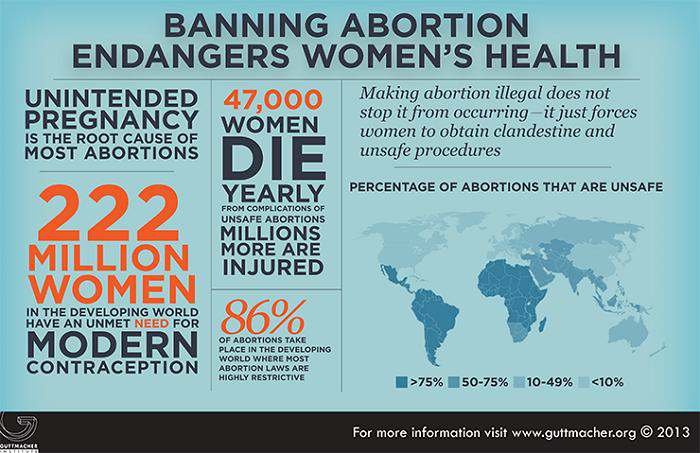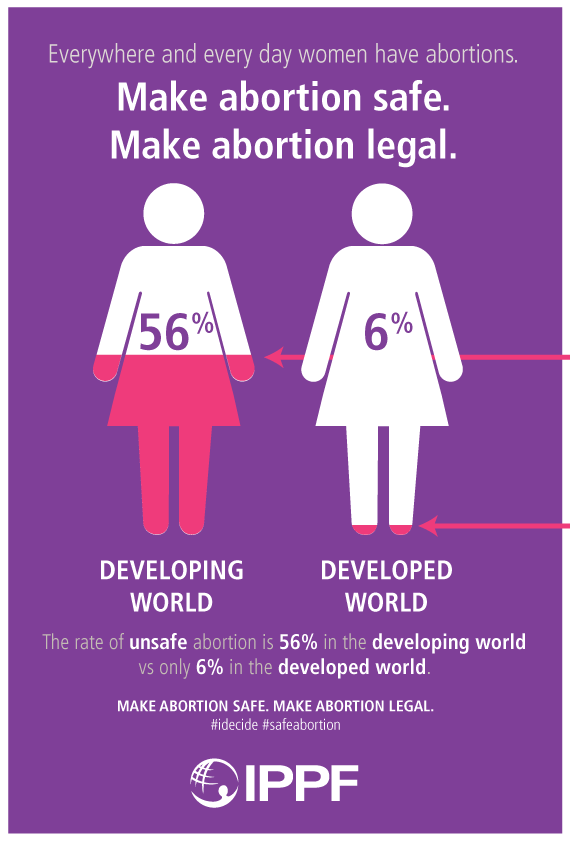Why Egyptians Need to Change How They View Abortion?
When I was 16-years-old, I thought abortion should be made legal because I truly believed in the slogans of the pro-choice movement. The determining factor for me was some sort of slogan that I often heard from pro-choice activists: “My body, my choice!”

I am 6-years-0lder now, and I realize that if one were to make a case for abortion in Egypt and have it be successful, one must stir away from such slogans. This is because it is extremely hard to convince mainstream Egyptian public opinion that a woman’s body is exclusively her property.
Also, the whole pro-choice stance applied in a non-Western context loses meaning; it becomes attacked as a form of attempted cultural colonialism, co-opted by some Western commentators to ensure the West’s superiority.
Additionally, it is criticized for being a stance that lacks considerations of cultural sensitivity, specifically it lacks consideration of the strong influence of religion inscribed in the minds, hearts, and constitutional tradition of Egypt.

I genuinely do believe that some of these criticisms are fair ones, and I really do want to discuss abortion in a manner that steers the discussion away from the whole pro-choice versus pro-life camps.
Just to pay cultural sensitivity enough credence, however, I just want to say that Islamic religious interpretations hold flexibility and debate on this matter; it is not as straight out haram (forbidden) or wrong as some religious commentators or every day individuals make it seem.

Indeed, this video contains footage of Dr. Aly Gomaa, one of Egypt’s most renowned Azhar scholars, and Former Head of Religious Fatwa in Egypt (2003 – 2013); speaking on the matter of abortion after a female caller asks him for his opinion on undergoing an abortion before the fetus turns 40 days.
Gomaa states that Imam Malik condones abortions so long as they happen, before the 40-day period, and that Imam El Shafe’ei condones abortions so long as they occur before a 120-day period. Gomaa himself steers more towards Imam Malik’s stance, but does not deny the credibility of Imam El Shafe’ei’s stance.
Gomaa then proceeds to explain that the debate is a complex one, as it entails what counts as life, and what differentiates organic life (like say a plant or a fetus) from a full out human being with a mind and a soul.

Two things become clear here. Firstly, there is a lot of historically credible religious opinions and interpretations of Islam that condone abortion as a principle. This ought to put end to the myth that it is flat out haram, no questions asked, no debates to be had.
Secondly, it is highly exceptional that any woman would want to undergo an abortion after the first trimester period has expired anyway, and certain interpretations of Islam affirm her right to do so within the first trimester.
So let’s bust another myth: to make abortion legal is not to make it legal throughout the entire nine months of pregnancy!

Abortion is a medical procedure, when a medical procedure is banned healthy women have to choose to either have at home abortions — by taking pills — or by going to underground clinics that lack sanitation and trained medical personnel, or to simply have an unwanted child.
Hence, this legal ban does not have a neutral effect, it has a clear harmful effect, and nothing is being done. Any law that forces any citizen to make such a choice has fundamentally failed in an important way.

Finally, to those who argue that legalizing abortion during the first trimester of pregnancy will encourage pre-marital sex, are there statistics that affirm that?
Was there a study done that measured the incidence of pregnancy via pre-marital encounters, before and after legalizing abortion?
Is there social research that affirms that there is a group of individuals, amounting to it being called a phenomenon, who are waiting for the ban on abortion to be lifted for them to have premarital sex?

Laws like this should not be placed on the premise of moral panics, or irrational and personal fears. Laws should be in touch with material reality.
There is a material reality that shows there is a lot of room for Islamic religious flexibility in the case of abortion, and there is a material reality that shows that the current legal ban is actually conductive of harm.
WE SAID THIS: The Unspoken Truth of Arab Women Getting Abortions.
